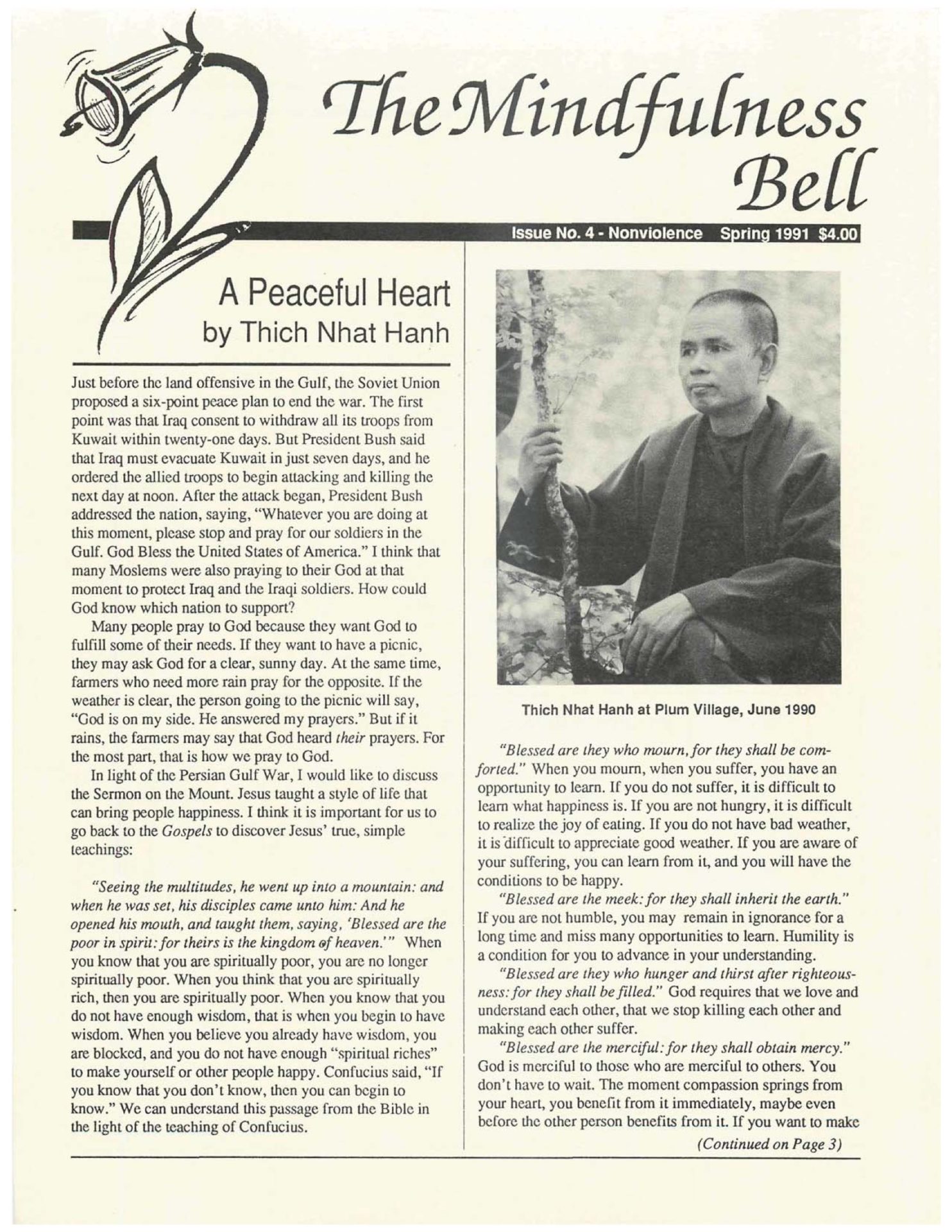By Deborah Huntley
When we talk with young children about the war and the state of the world, we need to pause, breathe, and consider our own state of mind. When we speak to the young, we have an open and vulnerable audience. What we (adults) offer children is far more than words. We share our state of mind with them even more than the information we try to convey.
When an adult speaks with a child,
By Deborah Huntley
When we talk with young children about the war and the state of the world, we need to pause, breathe, and consider our own state of mind. When we speak to the young, we have an open and vulnerable audience. What we (adults) offer children is far more than words. We share our state of mind with them even more than the information we try to convey.
When an adult speaks with a child, the child's mind is spontaneously scanning the way the adult is relating to his or her own mind. Chances are good that the child will unconsciously copy the adult's pattern. Young children naturally imitate.
So then, what would we like to offer the young children when we speak to them about this war? We want to tell them the truth that since world leaders are unable to understand each other and negotiate an agreement, force is being used. We can tell the children that the fighting is far away and that we ourselves are safe from immediate danger. We can say how sad we are that people we know or don't know have been hurt by this war. Children over three will understand these words. Yet more than that, the young will be absorbing the patterns of the adult's state of mind. We need to protect the minds of children from the roller coaster rides of too much talk, speculation, conceptualization, and the violent swings of protests and patriotism.
Adults who are with children have the responsibility and position to offer the children a worthy model of how to be a real human being. This is an intense time. The young are busy taking it all in. We adults must be conscious of our own state of mind. That is the most immediate and helpful thing we can do for children here at home.
What can we do to change our own shaky state of mind to be better for the children? The old remedy to take a deep breath and count to ten is still as good as ever. Or, better yet, take ten deep, slow breaths to change a fearful mind into a stable and careful one. Oxygen does wonders for the brain.
While we humans are re-making this world, one wonders how we can survive. If we can promote stable and open minds, we are opening a gateway to the understanding heart - and that means giving a future to children everywhere.
Deborah Huntley is the Director of the Apple Alley Children's Center in Longmont, Colorado.

